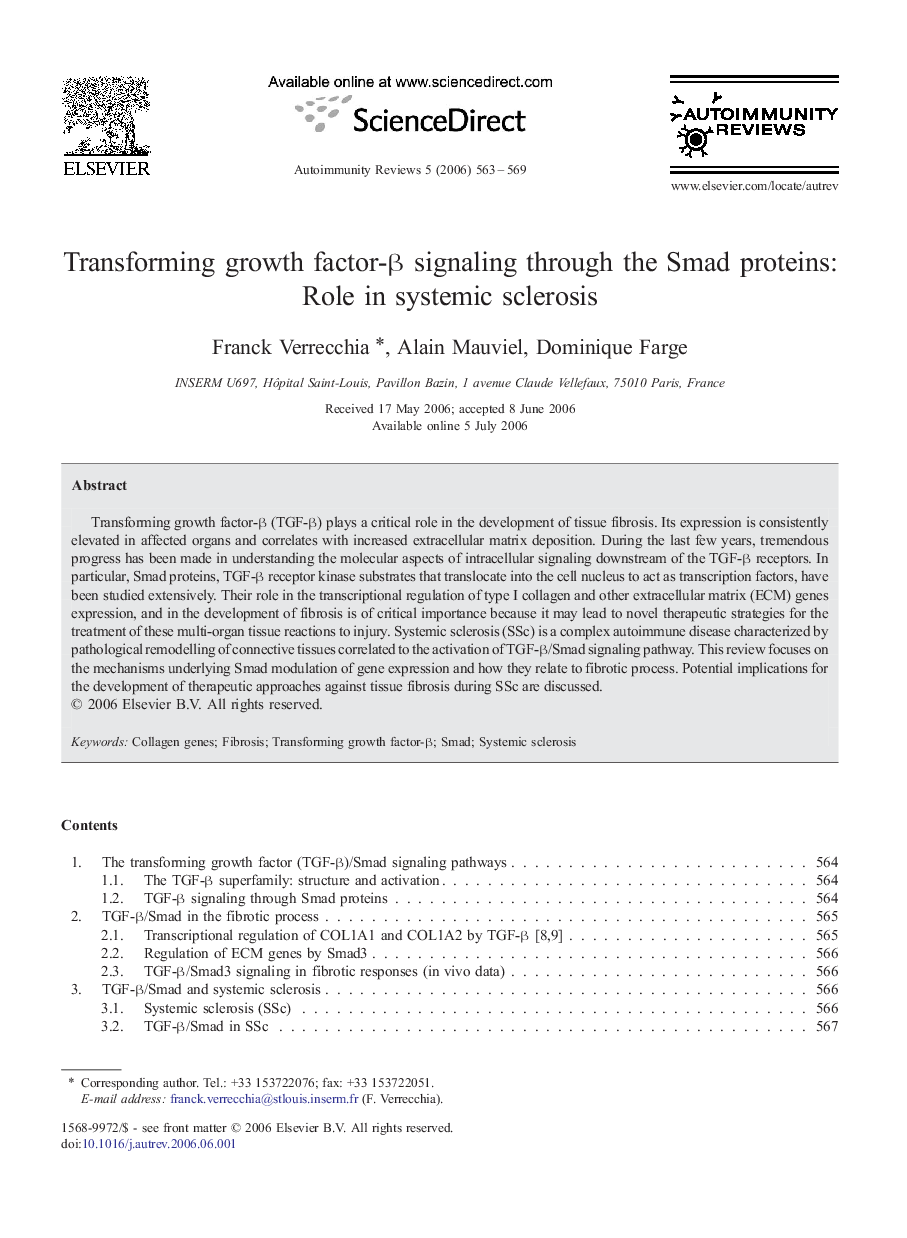| کد مقاله | کد نشریه | سال انتشار | مقاله انگلیسی | نسخه تمام متن |
|---|---|---|---|---|
| 3342653 | 1214299 | 2006 | 7 صفحه PDF | دانلود رایگان |

Transforming growth factor-β (TGF-β) plays a critical role in the development of tissue fibrosis. Its expression is consistently elevated in affected organs and correlates with increased extracellular matrix deposition. During the last few years, tremendous progress has been made in understanding the molecular aspects of intracellular signaling downstream of the TGF-β receptors. In particular, Smad proteins, TGF-β receptor kinase substrates that translocate into the cell nucleus to act as transcription factors, have been studied extensively. Their role in the transcriptional regulation of type I collagen and other extracellular matrix (ECM) genes expression, and in the development of fibrosis is of critical importance because it may lead to novel therapeutic strategies for the treatment of these multi-organ tissue reactions to injury. Systemic sclerosis (SSc) is a complex autoimmune disease characterized by pathological remodelling of connective tissues correlated to the activation of TGF-β/Smad signaling pathway. This review focuses on the mechanisms underlying Smad modulation of gene expression and how they relate to fibrotic process. Potential implications for the development of therapeutic approaches against tissue fibrosis during SSc are discussed.
Journal: Autoimmunity Reviews - Volume 5, Issue 8, October 2006, Pages 563–569